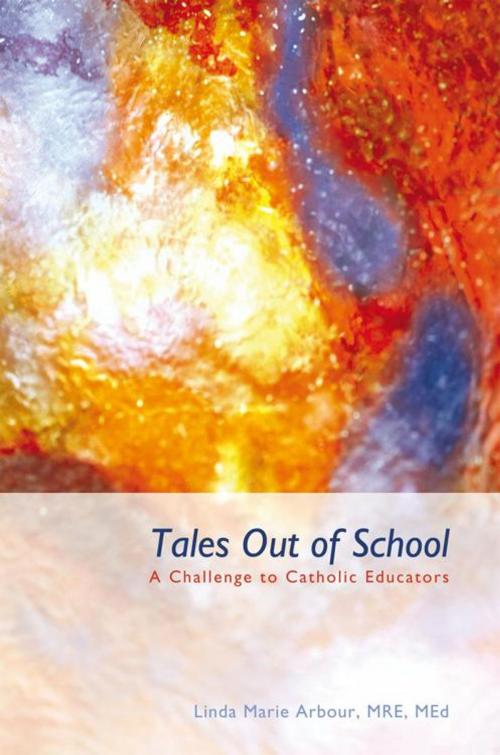Tales out of School
A Challenge to Catholic Educators
Nonfiction, Religion & Spirituality, Christianity, Youth Ministries, Reference & Language, Education & Teaching, Educational Theory, Aims & Objectives, Biography & Memoir| Author: | Linda Marie Arbour | ISBN: | 9781450289115 |
| Publisher: | iUniverse | Publication: | April 29, 2011 |
| Imprint: | iUniverse | Language: | English |
| Author: | Linda Marie Arbour |
| ISBN: | 9781450289115 |
| Publisher: | iUniverse |
| Publication: | April 29, 2011 |
| Imprint: | iUniverse |
| Language: | English |
Tales Out of School presents a memoir offering a critical examination of the culture that exists with with an analysis of the unconscious and theoretical dimensions of this psychological and sociological agenda. Author Linda Arbour reflects upon her experience as student, teacher, and administrator in the multi-racial, multi-ethnic, public secondary Catholic schools of Toronto, Ontario.
Arbour insists that these schools exist to transmit the counter-cultural values of Jesus, values of equality and inclusion, where power is used to enhance the growth and flourishing of everyone, not merely to duplicate the secular norms of social upward mobility and individual status. Even so, as viewed through the lens of a newly recognized social Catholic tradition, she describes the cultural impasse she encountered while trying to realize these values. Within the structure of the Catholic school system, she discovered a morass of traditional male privilege and cronyism and a professional culture hostile to the flourishing of women as well as of teachers in general.
She challenges future teachers and administrators to gain a heightened awareness in order to address these concerns within the context of the gospel by imagining a culture that emphasizes a concern for the most disciplined and talented students.
Tales Out of School presents a memoir offering a critical examination of the culture that exists with with an analysis of the unconscious and theoretical dimensions of this psychological and sociological agenda. Author Linda Arbour reflects upon her experience as student, teacher, and administrator in the multi-racial, multi-ethnic, public secondary Catholic schools of Toronto, Ontario.
Arbour insists that these schools exist to transmit the counter-cultural values of Jesus, values of equality and inclusion, where power is used to enhance the growth and flourishing of everyone, not merely to duplicate the secular norms of social upward mobility and individual status. Even so, as viewed through the lens of a newly recognized social Catholic tradition, she describes the cultural impasse she encountered while trying to realize these values. Within the structure of the Catholic school system, she discovered a morass of traditional male privilege and cronyism and a professional culture hostile to the flourishing of women as well as of teachers in general.
She challenges future teachers and administrators to gain a heightened awareness in order to address these concerns within the context of the gospel by imagining a culture that emphasizes a concern for the most disciplined and talented students.















